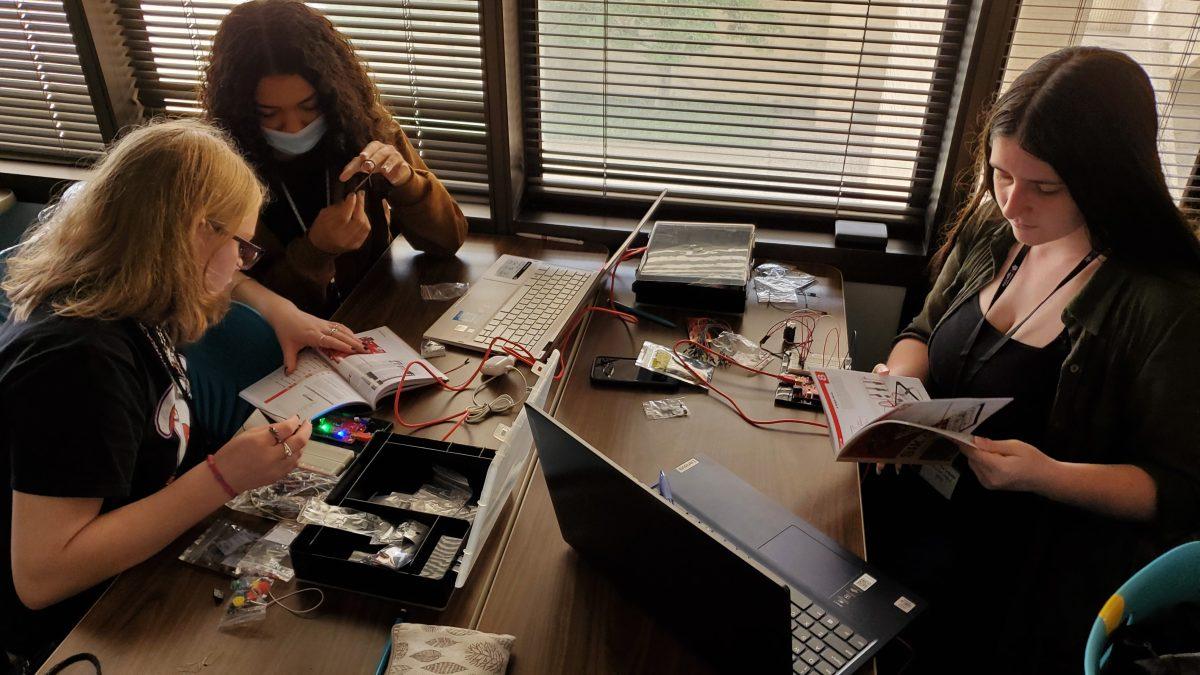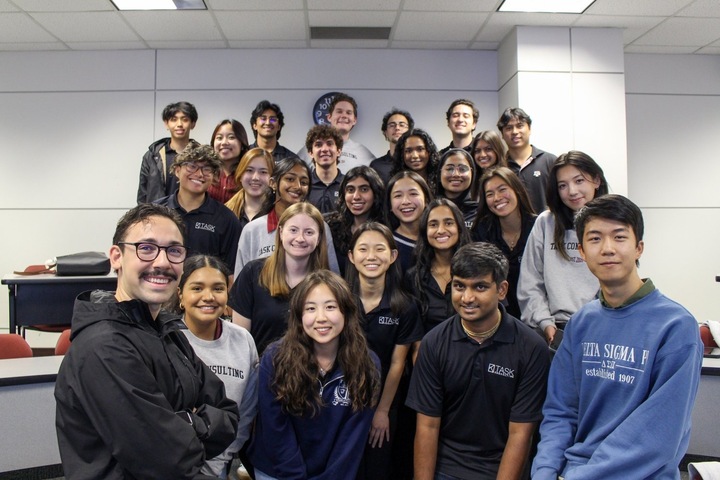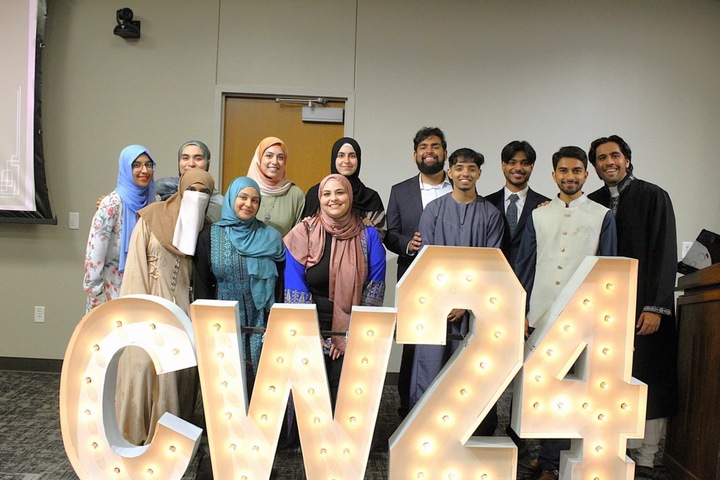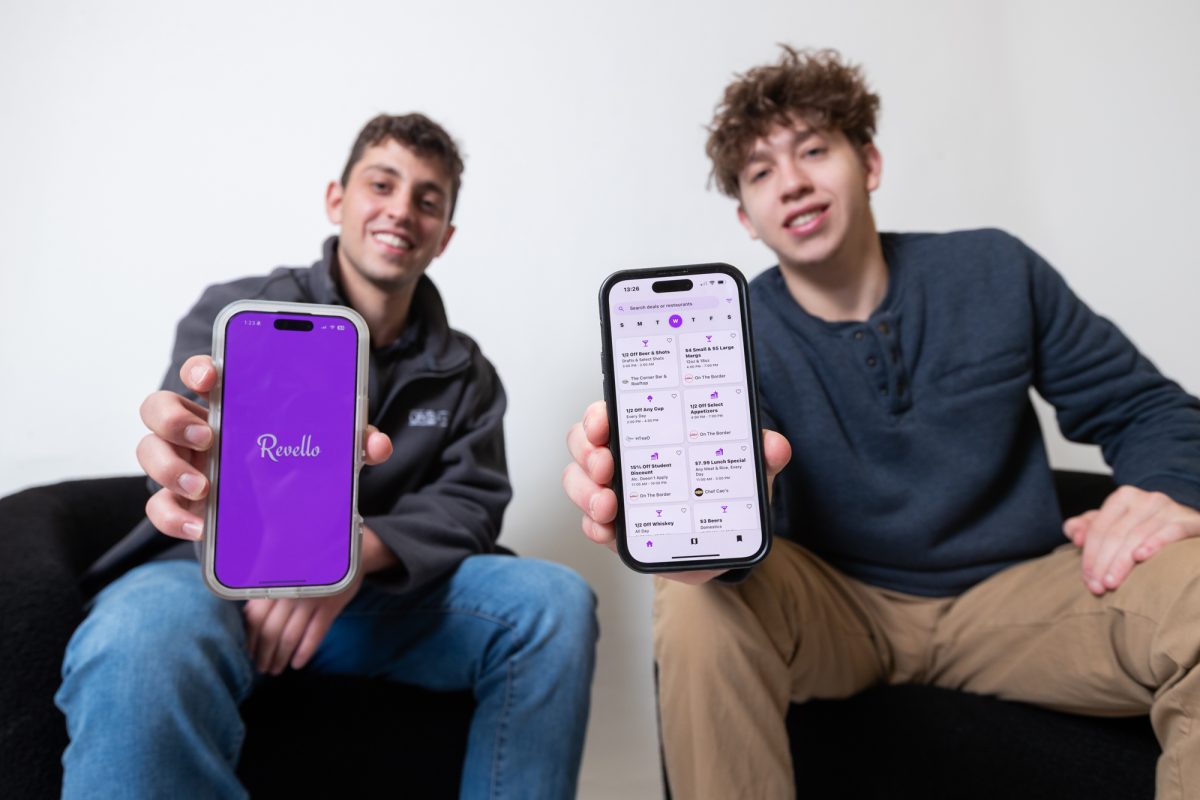In male-dominated fields such as science, technology, engineering and mathematics, or STEM, women are joining together on-campus to create a support system for each other.
Women make up only one third of the STEM workforce in the United States, and the cause of this is attributed to stereotypes, cultural expectations of women and a lack of support systems, according to Catalyst. At Texas A&M, there are resources available to women to help them succeed while in college and after graduation, such as Women in Science and Engineering, or WISE, and the Society of Women Engineers, or SWE. Both organizations offer alumni support and opportunities for experience and connections.
Forensic and investigative sciences sophomore Nicole Morkovsky said, in her experience, A&M allows for equal access to resources regardless of gender identity.
“Even if you’re not a STEM major, because maybe you have to take one science or math course for your major, I feel like the STEM opportunities and resources are still available just because you’re an Aggie,” Morkovsky said.
One barrier to women in these fields that Morkovsky said she noticed are preconceived conceptions of what a woman can or can’t do in research.
“There’s this idea that women in STEM are already not going to be as good as the men that are trying to do the same thing,” Morkovsky said. “So I feel like the first step is to just get away from that.”
The best way to continue supporting women in STEM is to get rid of previous stereotypes and for A&M to continue accepting everyone into all majors, Morkovsky said.
“These resources are really what push women to want to keep going in the STEM field, regardless of the connotation that they have from the outside world,” Morkovsky said.
Industrial and systems engineering senior Inchara Nelogal is the president of SWE and said some members are talked over or not taken seriously in STEM classes at A&M.
“They feel as though their opinions aren’t heard,” Nelogal said. “They think, ‘If these are my coworkers I’m going to be working with in the future, I don’t know if I want to do engineering.’”
It is proven that having a diverse mixture of men and women is beneficial for businesses due to bringing unique perspectives to the role, Nelogal said.
“If you have diverse perspectives [in the company], you could cater towards many different customers,” Nelogal said. “I think that’s the main benefit for getting women in these leadership roles.”
SWE is currently celebrating its 50th anniversary on-campus and Nelogal said there are many alumni members working in the engineering industry who support current members through a mentorship called Females Leading Aggies as Mentors in Engineering, or FLAME. In the mentorship, students are paired with alumni working in the engineering field to email bi-weekly and meet once a semester, Nelogal said.
Nelogal said she hopes SWE continues to grow and anyone interested can visit the SWE website for information on meetings.
“We’re always looking for new members,” Nelogal said. “Students can just show up to one of our general meetings. There are no dues to join our organization.”
Gayle Bornovski is a fifth-year Ph.D. candidate and president of WISE. She said the organization works with students of all ages to encourage women looking to go into STEM fields.
“We host Expanding Your Horizons, which is a STEM event for sixth-grade girls,” Bornovski said. “We do different science activities and bring a fun perspective of science to get kids interested.”
WISE does a lot of work into career advancement and Bornovski said members can reach out to alumni for any questions they may have.
“We have a lot of faculty members that we are affiliated with, who also provide mentorship and give an insight into their path towards their career,” Bornovski said. “The road to academia can be very daunting.”
WISE will also be hosting their biggest event in February, an online conference with women speakers in STEM, including Katelyn Jetelina, Ph.D., creator of the viral newsletter: Your Local Epidemiologist.
Although primarily a graduate student organization, Bornovski said membership is open to undergraduates as well.
“We hope to develop a mentorship program where we can partner graduate students with undergraduates looking at graduate school as a potential option and mentoring them in the application process,” Bornovski said.










